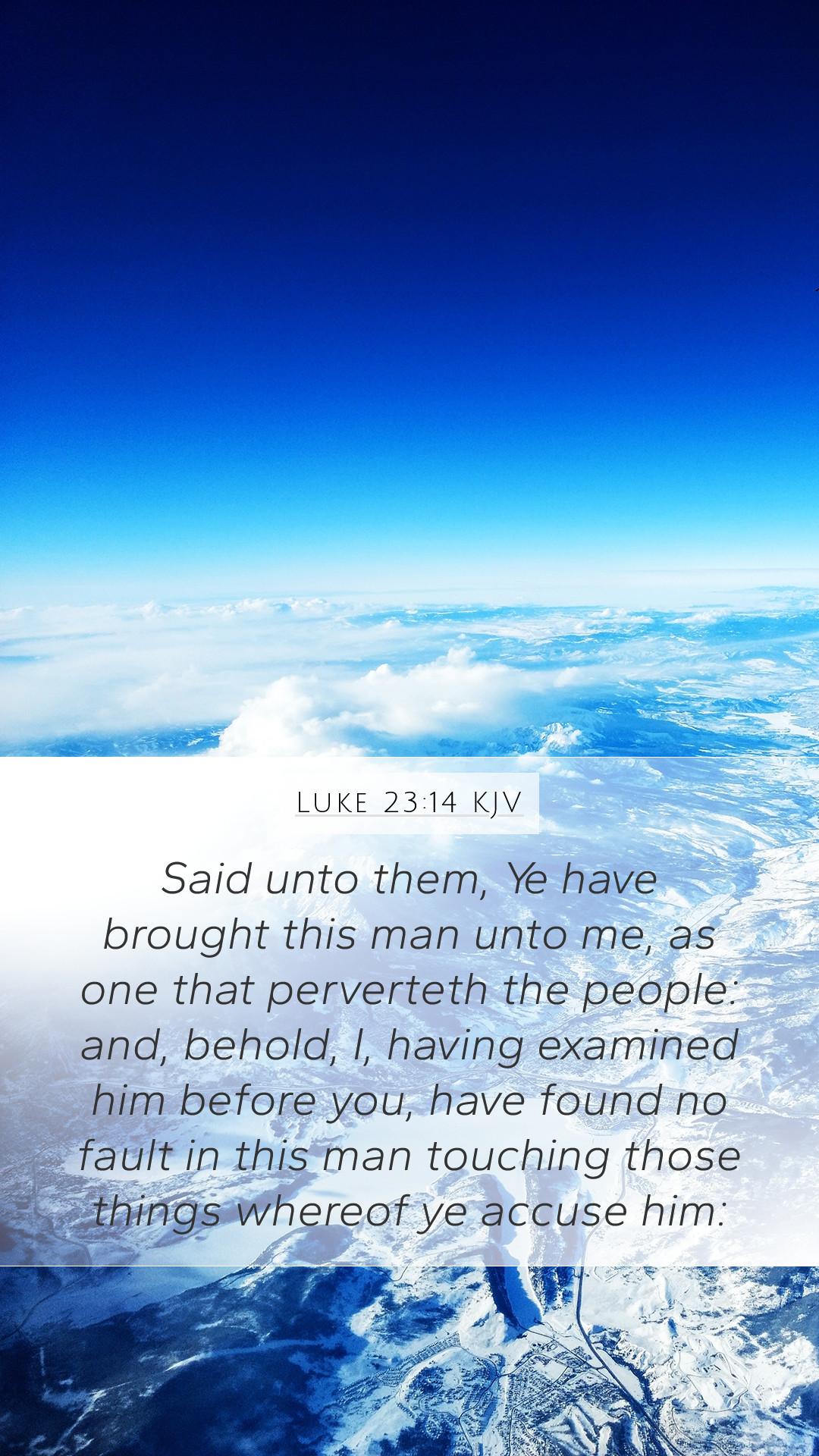Understanding Luke 23:14
Bible Verse: Luke 23:14 - "You have brought this man to me, as one who misleads the people. And behold, I have examined him before you, and have found no guilt in this man regarding the charges which you make against him."
Overview of the Verse
This verse occurs during the trial of Jesus before Pilate, where the governor is addressing the accusations brought against Jesus by the religious leaders of the time. This passage reveals important aspects of the judicial process concerning Jesus and highlights key themes of innocence and injustice.
Insights from Commentaries
-
Matthew Henry's Commentary:
Henry emphasizes the contrast between the false charges brought against Jesus and the reality of His innocence. He notes that Pilate's declaration demonstrates an honest admission of the lack of evidence against Jesus and points to the larger narrative of how Jesus is unjustly condemned.
-
Albert Barnes' Commentary:
Barnes explores the motives behind the accusations, suggesting that the Jewish leaders sought to frame Jesus as a political threat. He interprets Pilate's statement as a crucial moment that reveals the corruption within the judicial process, as well as God's providential control over these events leading to the crucifixion.
-
Adam Clarke's Commentary:
Clarke provides a detailed analysis of the language used in the verse. He comments on the term "misleads," interpreting it as reflecting the leaders' concerns about their authority, juxtaposed with Pilate's recognition of Jesus' innocence. Clarke also elaborates on the significance of Pilate's position in the narrative as a figure of Roman law grappling with the extraordinary circumstances surrounding Jesus' trial.
Key Themes and Applications
The verse encapsulates several critical themes relevant for biblical study:
-
Innocence of Christ:
This verse strongly affirms the innocence of Jesus in the face of unfounded accusations, reflecting a core belief in Christian theology concerning His sinlessness and suitability as a sacrifice for humanity.
-
Corruption of Authority:
Pilate's acknowledgment of the lack of guilt in Jesus serves as a commentary on the judicial injustices prevalent in society. Believers can reflect on how authority figures might abuse power, leading to the wrongful condemnation of the innocent.
-
The Sovereignty of God:
Despite the grave circumstances, this moment illustrates the control God has over historical events, prompting readers to trust in His overarching plan even in times of suffering and injustice.
Cross References
This passage can be connected to several other scripture references:
- John 18:38 - "What is truth?" - Pilate's interaction with Jesus reflects his struggle to understand truth.
- Matthew 27:24 - Pilate's act of washing his hands signifies his desire to distance himself from Jesus’ blood.
- Luke 23:22 - Pilate reiterates his finding of Jesus’ innocence, adding depth to the ongoing narrative of rejection.
Conclusion
Luke 23:14 serves as a pivotal moment in the passion narrative, encapsulating themes of injustice, divine providence, and the innocence of Christ. For anyone looking to deepen their understanding of this scripture, the insights from esteemed commentaries provide valuable perspectives on its significance within the broader biblical context.
Further Study and Reflection
For those engaged in Bible study or seeking to understand difficult passages, consider these insights pivotal:
- Engage with the text through different Bible study tools and resources for a comprehensive understanding.
- Discuss within your Bible study groups the implications of Pilate’s findings on how we view truth and justice today.
- Reflect on the application of Jesus’ teachings in your daily life and the injustices faced in the world.


